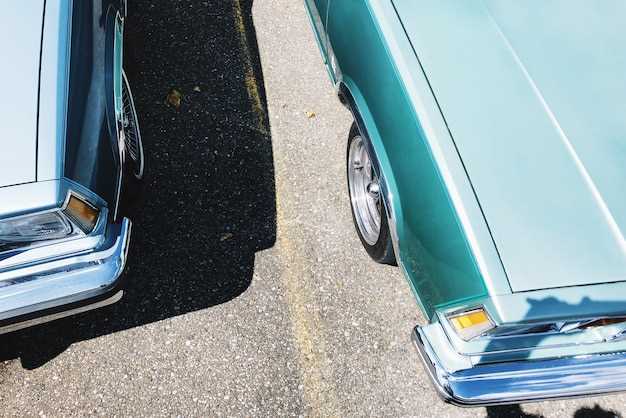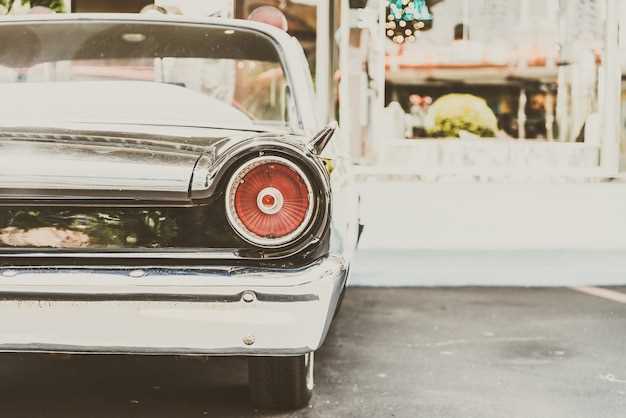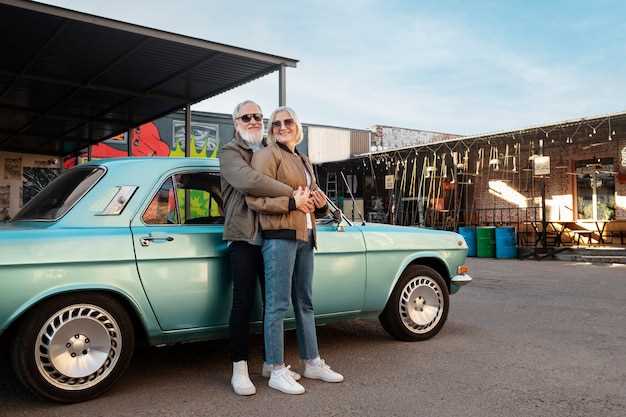
Classic cars have long been a symbol of nostalgia, craftsmanship, and automotive history. The charm of these vehicles often draws enthusiasts to import classic models from various countries, seeking unique features and unmatched style. However, the decision to invest in imported classic cars comes with its own set of advantages and disadvantages that potential buyers must consider.
One significant advantage of imported classic cars is the diversity of options. Many classic models, especially those not available in the domestic market, can be found abroad. These imported cars often showcase distinctive designs and engineering characteristics that set them apart from their domestic counterparts. Additionally, importing a classic car can be a rewarding endeavor that allows collectors to acquire rare vehicles with unique histories and features that enhance their overall value.
On the other hand, there are notable disadvantages to consider when importing classic cars. The legal and logistical challenges, such as compliance with local regulations and tariffs, can complicate the process. Furthermore, imported classic cars may require extensive maintenance or modifications to meet safety and emissions standards. This often results in additional costs and time investments for the owner, making it essential to weigh these factors carefully before making a purchase.
Cost Implications of Importing Classic Cars
The decision to import classic cars involves several cost implications that potential buyers should consider. First and foremost, the purchase price of the car itself can vary significantly depending on the model, condition, and rarity. Imported classic cars often come at a premium due to their overseas availability and the allure of unique features.
In addition to the purchase price, buyers must account for shipping costs. These can include freight charges, insurance during transit, and any customs fees that may apply once the vehicle arrives in the destination country. It’s essential to research shipping companies and understand the various options available to ensure a cost-effective solution.
Moreover, there are potential taxes and tariffs associated with importing classic cars. Depending on the regulations in the destination country, buyers may face import duties based on the vehicle’s declared value. Staying informed about these financial obligations is crucial to avoid unexpected expenses.
Additionally, maintenance and restoration costs can be substantial for imported classic cars. Parts may be harder to find or more expensive due to their overseas origin, which can lead to increased upkeep expenses over time. It’s advisable to factor these potential costs into the overall budget when considering an imported vehicle.
Finally, insurance premiums for imported classic cars can be higher than for domestic models. Insurers may charge more due to the risks associated with their rarity and value. Understanding how much insurance will cost is essential for overall financial planning.
Maintenance Challenges Unique to Imported Classics

Owning an imported classic car comes with a set of unique maintenance challenges that can significantly impact the ownership experience. One of the primary issues is the availability of parts. Many classic cars, especially those manufactured decades ago, may have parts that are scarce or no longer produced, making repairs and restorations costly and time-consuming.
Furthermore, labor expertise is often a challenge. Mechanics familiar with specific classic models or brands may be hard to find, particularly for cars from manufacturers that are less common in the domestic market. This can lead to increased service costs as owners may need to seek specialized technicians, often requiring travel to distant locations.
Another concern is the compatibility of maintenance products. Oils, fluids, and other consumables tailored for imported classic cars may differ from those used in local models, requiring owners to source these items specifically. This can add complexity to routine maintenance and increase overall expenses.
Moreover, issues related to regulations can arise. Import laws and regulations vary by country, and compliance with emissions and safety standards can mandate modifications that further complicate upkeep. Owners may find themselves navigating a complex landscape of legal requirements to ensure their vehicle is roadworthy.
Climate and environmental conditions can also contribute to maintenance challenges. Imported classic cars may not be designed for extreme weather situations encountered in their new locations, leading to deterioration and failure of certain components more quickly than expected. Owners may need to invest in additional protective measures to preserve the integrity of their classic cars.
In summary, while imported classic cars offer unique charm and appeal, the challenges associated with their maintenance can be significant. The scarcity of parts, the need for specialized labor, compatibility issues with maintenance products, regulatory hurdles, and environmental factors all demand careful consideration from enthusiasts looking to own and maintain these timeless vehicles.
Regulatory and Legal Considerations for Imported Classic Cars

Importing classic cars involves navigating a complex landscape of regulations and legal requirements that vary by country and region. Understanding these regulations is crucial for enthusiasts who wish to own or restore vintage vehicles.
One of the primary concerns is compliance with customs regulations. Each country has specific rules governing the importation of vehicles, including duties and taxes. For example, exporters may need to provide documentation that proves the car’s age and its classification as a classic, often defined by the model year or its historical significance.
In addition to customs, emissions standards and safety regulations can pose challenges for imported classic cars. Many countries have adopted strict environmental laws that apply to all vehicles, including older models. Importers should verify whether their classic car meets these standards or if modifications are necessary.
Furthermore, title and registration requirements may differ. Importers need to ensure that they can obtain a valid title and successfully register their vehicle in their home state or country. This process may require inspections and additional paperwork, which can be time-consuming and complex.
Another important aspect is understanding the insurance requirements for imported vehicles. Classic cars often need specialized insurance coverage due to their unique value and status. Owners must research insurance options that cater to classic vehicles specifically, ensuring they meet legal requirements while providing adequate protection.
Moreover, potential changes in legal ownership or the risk of disputes can arise during the import process. It is essential to keep thorough records of the purchase and any modifications made to the vehicle to safeguard against potential legal issues down the line.
In summary, potential owners of imported classic cars should conduct thorough research on all regulatory and legal considerations. Understanding customs laws, emissions and safety regulations, title and registration processes, insurance needs, and the importance of documentation can help ensure a smoother import experience.




